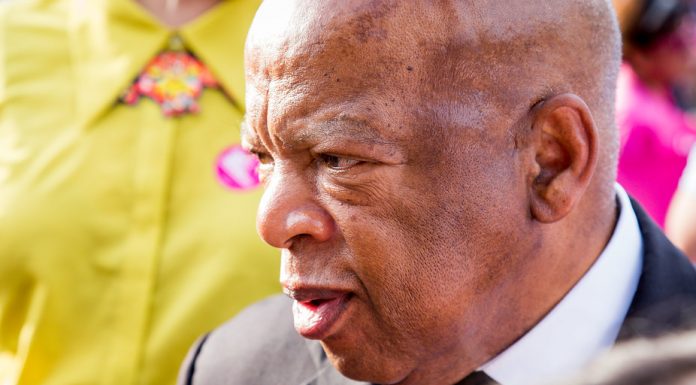(Headline USA) House Democrats on Tuesday put forward a new proposal to update the antiquated Voting Rights Act after seeing it stripped by a 2013 Supreme Court decision and failing in another recent effort to seize federal control of state elections.
However, amid the fallout from their failed power grab, they may face long odds trying to revive the Civil Rights-era legislation that once required segregationist Southern Democrats to seek approval before modifying their state laws.
The Supreme Court set aside the formula that decided which jurisdictions were subject to the requirement in a 2013 decision and weakened the law further in a ruling this summer.
The new bill, introduced by Rep. Terri Sewell of Alabama, would restore a key provision of the federal law that compelled states with a history of discrimination to undergo a federal review of changes to voting and elections.
House Speaker Nancy Pelosi, D-Calif., pledged to move quickly and said Democrats plan to pass the bill when the House returns next week as part of a package deal that also would include a $3.5 trillion budget appropriations bill and $1.5 trillion infrastructure package.
Democrats claimed the efforts by states like Georgia and Texas to shore up their elections—after corrupt Democrat officials abused loopholes in 2020 under the auspices of pandemic emergencies—showed that the now-Republican-led states could not be trusted to conduct their own elections.
“With the attack on the franchise escalating and states beginning the process of redistricting, we must act,” Pelosi said in a statement.
Democrats are particularly fearful that if they don’t act now, they will lose the House and Senate as part of an expected “red wave” backlash next year that, ironically, would largely be a repudiation of their current efforts.
They have sounded the alarm about the states’ new voting reforms, ludicrously comparing the impact on minorities to the disenfranchisement of Jim Crow laws, but they have struggled to unite behind a strategy to overcome near-unanimous Republican opposition in the Senate.
The new House bill, known as HR 4, is named after Georgia congressman and civil rights leader John Lewis, who died last year.
Sewell announced the introduction of the bill in front of the Edmund Pettus Bridge in Selma, Alabama, where Lewis was beaten during a civil rights march in 1965. The Voting Rights Act was signed into law a few months later.
“We’re not looking to punish or penalize anyone. This is about restoring equal access to the ballot box. It’s about ensuring that Americans know their vote counts and their vote will count at the ballot box,” Sewell claimed.
The Lewis bill outlines a new, expanded formula that the Department of Justice can use to identify discriminatory voting patterns in states and local jurisdictions.
Those entities would then need to get DOJ approval before making further changes to elections.
The bill also includes a provision designed to counter the summer’s Supreme Court ruling upholding an Arizona law that banned ballot harvesting.
The court ruling, they complain, made it harder to challenge potentially discriminatory voting changes.
HR1, the companion bill pushed by Democrats, has stalled in the Senate amid bipartisan opposition. Democrats had hoped to eliminate a longstanding procedural check on power, the filibuster, in order to ram it through on a 50-vote basis without any GOP support.
However, several moderates in their own party were not on board with the idea of ending the filibuster, which they benefited from themselves and universally supported during the first two years of the Trump administration, while under Republican control.
Democrats have claimed both bills are needed to safeguard access to the ballot. They emphasize that the update to the Voting Rights Act would not apply to many voting changes already made by the states. The For the People Act, on the other hand, would codify many of the COVID-driven rules such as same-day and automatic voter registration, early voting and no-excuse absentee voting.
That, argue its opponents, would practically invite widespread, systemic vote fraud like what many believe occurred during the 2020 election.
Senate Democrats have pledged to take up that more expansive bill when they return next month as the first order of business, though it is unclear how they can maneuver around GOP opposition.
Republicans signaled they’ll try to stop HR4 much as they did its predecessor.
“This bill is a federal power grab and a gift to partisan, frivolous litigators who will use it to manipulate state laws and throw all federal elections into chaos, further undermining voter confidence in fair and accurate elections,” said Jason Snead, executive director of Honest Elections Project Action.
Groups that back the voting measures are planning marches in several cities on Aug. 28 to call on the Senate to remove the filibuster rule.
Adapted from reporting by the Associated Press

